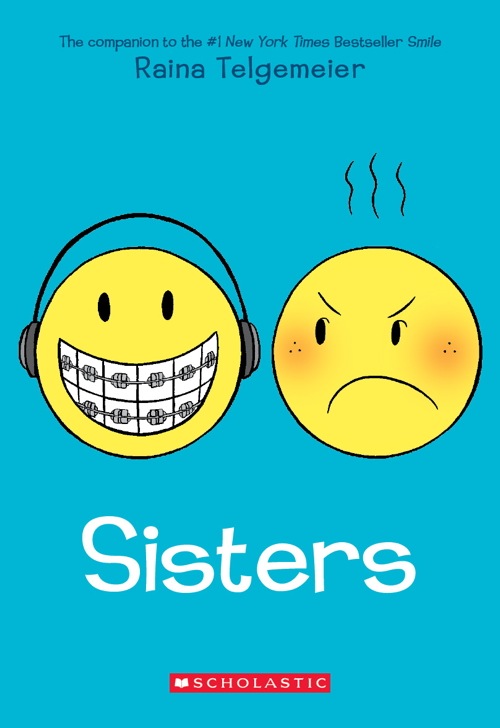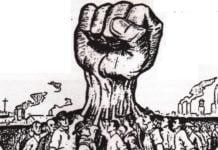As you may have noticed, female cartoonists are dominating sales charts (well graphic novel sales charts, anyway) and awards and current cartooning classes are anywhere from 50 to 75% female. It seems that a majority of the most notable “emerging cartoonists” are women, and a lot of folks have been joking that it’s hard to find up and coming men in comics.
When I first saw that cartooning students were overwhelmingly female, I was excited to see the long gender imbalance of the industry changing. But then I began to wonder if this meant that it would become a less prestigious industry.
Because as more women enter a field, the pay becomes lower. The New York Times laid this out in a piece called As Women Take Over a Male-Dominated Field, the Pay Drops and it has tons of studies and statistics to back up this grim and upsetting fact.
And there was substantial evidence that employers placed a lower value on work done by women. “It’s not that women are always picking lesser things in terms of skill and importance,” Ms. England said. “It’s just that the employers are deciding to pay it less.”
A striking example is to be found in the field of recreation — working in parks or leading camps — which went from predominantly male to female from 1950 to 2000. Median hourly wages in this field declined 57 percentage points, accounting for the change in the value of the dollar, according to a complex formula used by Professor Levanon. The job of ticket agent also went from mainly male to female during this period, and wages dropped 43 percentage points.
The same thing happened when women in large numbers became designers (wages fell 34 percentage points), housekeepers (wages fell 21 percentage points) and biologists (wages fell 18 percentage points). The reverse was true when a job attracted more men. Computer programming, for instance, used to be a relatively menial role done by women. But when male programmers began to outnumber female ones, the job began paying more and gained prestige.
Pay gaps between male and female cartoonists have been documented (at least one cartoonist with am ambiguous name got offered a lower page rate when her gender was know.) And as we’ve noted here many times, page rates have stagnated at best and fallen at worst in recent years. A lot of publishers who aren’t DC and Marvel pay rates well below the big two, and even art rates under $100 are sadly common.
Of course, this general fact that women’s professions are less pretigious and earn less is appalling in its own right. Why is women’s work so little valued in so many cultures around the world?
Granted, creative fields have very different pay rates than blue collar and office work. Female pop stars seem to do just fine. But even winning an Oscar wasn’t enough to get Jennifer Lawrence the same rate as her male co-stars in American Hustle. And Hollywood’s own wage gap is well documented.
For now, women who are creating best-selling graphic novels are doing just fine by making huge royalties. But I can’t help but wonder if the influx of women making comics might have some subconscious deleterious effects as well.








I suspect just the flood of talented and trained newcomers, all chasing the same few slots for what is still a boutique industry will drive the rates down. The gender wage gap is a problem, but it’s not just a comics problem.
This was something I was learning in Human Resources 20 years ago. The saying then wasn’t just equal pay for equal work, but equal pay for equal work value. There were systems already in place (we learned the Hayes System) that went through jobs and broke down the duties by how much education you needed to do it, how much skill, how important it is to the company that it be done right, stress level involved, physically difficult it was, etc… And assigned numbers to it all. Once it was done, you added them up to get a total. Do this for all jobs in the company and you quickly realize that jobs done predominantly by women were lower paying than jobs of similar total and even lower total that were done predominantly by men.
Be careful about assuming what the connection between these two trends is. For example, did computer programming become well-paying because the field became male-dominated, or did men flock to the field and assert their social privilege to those jobs as it became a way to make good bank? Or did the two trends feed each other?
Pay in the comics field has been in decline for a long time, beginning well before women started to become a visible presence (and remain few and far between at the Big Two). Meanwhile, I’ve heard countless stories about (male) cartoonists leaving the field for greener pastures, creating an opportunity for female cartoonists to fill some of that void.
Its a good question. Hopefully, the increased interest in female driven comics will keep the pressure on & keep the rates competitive.
As a librarian–working in a profession where, traditionally, only the heads of libraries were men–I am painfully familiar with this phenomenon.
I think a lot of women are bred with a “go along to get along” mentality and we accept lower paying jobs just to avoid being perceived as a bitch. Women settle whereas more men negotiate. That’s not all of it, but it is part of it.
Personally, I don’t even respond to low ball job offers because if you perceive me to be of lower worth for my skill, I perceive you to be of lower worth as an employer. Does that mean people perceive me as a bitch? Maybe, but I don’t care. I’m worth the rate I demand and I’ve been working my ass off to ensure everyone who sees my work knows it.
So many young artists learn to pencil and ink quickly with computer pads and it’s led to a simplified art style that rely a lot more on a great colorist to make it work. Is it possible that more simple, cartoony art is less valuable than the older, more realistic art? Of course, the colorists may not be making any more either.
The cover of ‘Sisters’ has to be one of the most irrating things I’ve ever seen. I’m taking Kenneth Branagh’s logorrheic Woody Allen impersonation in ‘Celebrity’-level irritating, or the endless airplay of Adele’s latest dirge.
Comments are closed.